Everyday life for a drug addict in Switzerland
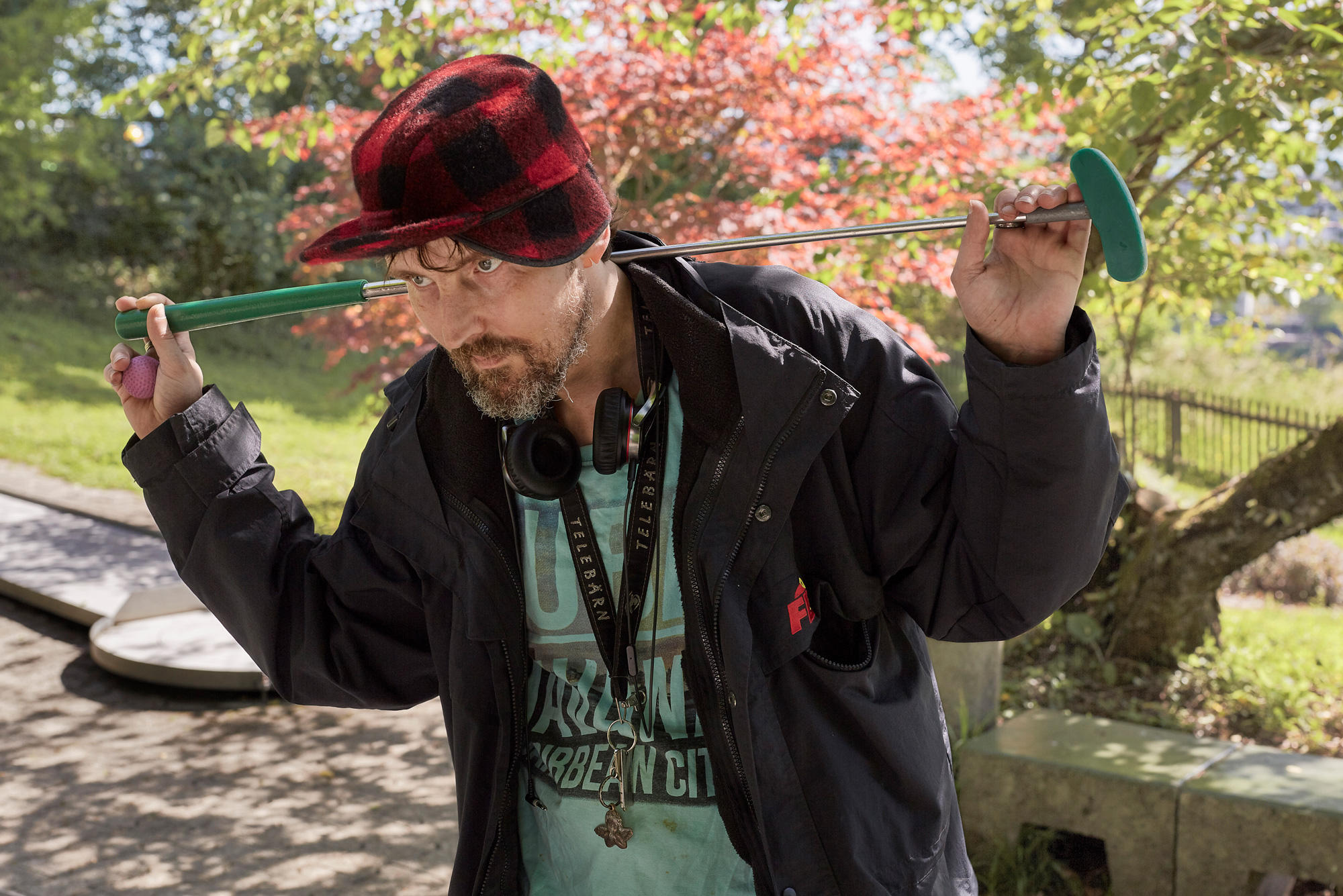
Switzerland’s progressive drug policies have not only caused the open drugs scene to disappear, they have also saved the lives of a large number of addicts. Heroin addicts have now disappeared from public view. How do they live today? A book gives insight into the day-to-day life of a drug addict.
In the 1990s, Switzerland seized headlines worldwide with shocking images of the open drugs scene. The misery was so extensive, that starting in 1993 Switzerland dared to break a taboo and distributed heroin to addicts under state control. The goal was to enable addicts to lead a stable life and prevent theft, prostitution and contagious disease.
The experiment worked. Thanks to Switzerland’s progressive drug policies, the open drugs scene disappeared. State-controlled heroin distribution saved the lives of many drug addicts. On the flip side, the most heavily addicted have largely disappeared from public view. How do drug addicts who have been dependent for years live? How does their day-to-day life look, their daily worries and joys? How does addiction affect relationships? A book gives some answers: The Swiss writer Roland Reichen and his drug-addicted brother Peter Reichen have written a book in which the latter recounts his day-to-day life. The photographer Jonathan Liechti has chronicled Peter’s life in images. Here we publish some pictures and excerpts from the book “Druffä. Aus dem Leben eines Berner Drogensüchtigen” (“Druffä. Tales From the Life of a Bern Drug addict.“ It is abridged and lightly edited.)
Stories from the day-to-day life of an addict
“It is really bad in the morning. Fever. I feel queasy and almost throw up. My bones ache. I am sweating buckets but at the same time I feel prickles all over as though I was standing naked in the snow. (…) I quickly get into yesterday’s clothes. (…) I smoke my first cigarette outside. (…) I can’t relax in the bus at all. I drum my fingers. Why is it moving so slowly today? Stopping at every traffic light!”
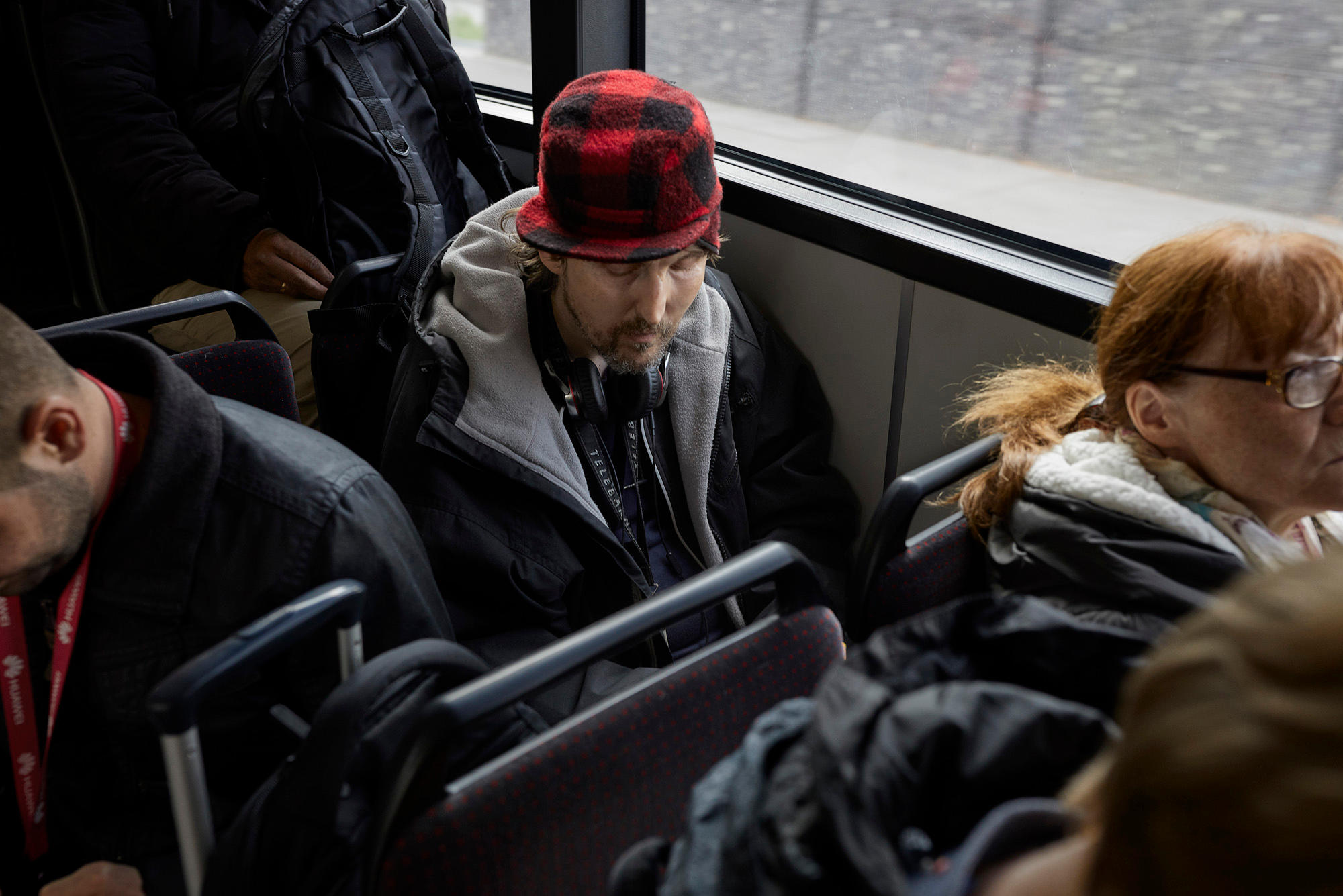
“At last we get there. Up the stairs, I put my finger on the fingerprint reader in front of the door, enter the little waiting-room one floor up. There are about 10 people standing in front of an armoured door, up near the ceiling there is a flat screen. My name, registered by my fingerprint, is right at the bottom.
You can stand or squat. I switch from one to the other constantly. My name is slowly climbing up the list on the screen towards the top. It takes about 15 minutes for it to light up right at the top in green. Another moment before the armoured door hums. I go in. While I am washing my hands, I call out to the nurse behind the counter; ‘150 milligrammes into the muscle. And maybe a Ponstan too because I can feel my kidneys again.’”
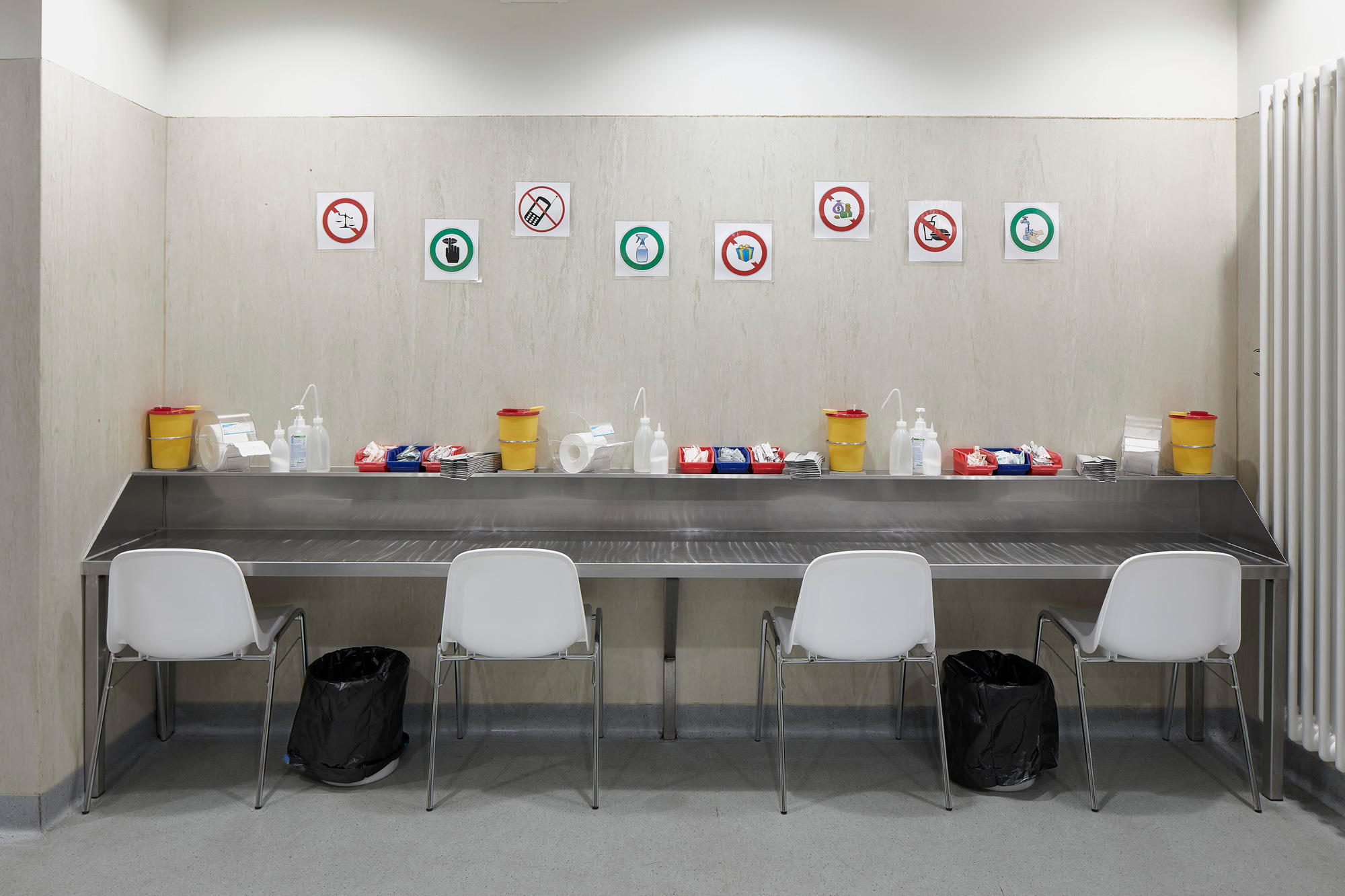
“I take the full syringe to my seat. I have to swallow the Ponstan so that the nurse can see me do it. Then disinfection. Then I stick the syringe into my upper thigh, and push slowly.”
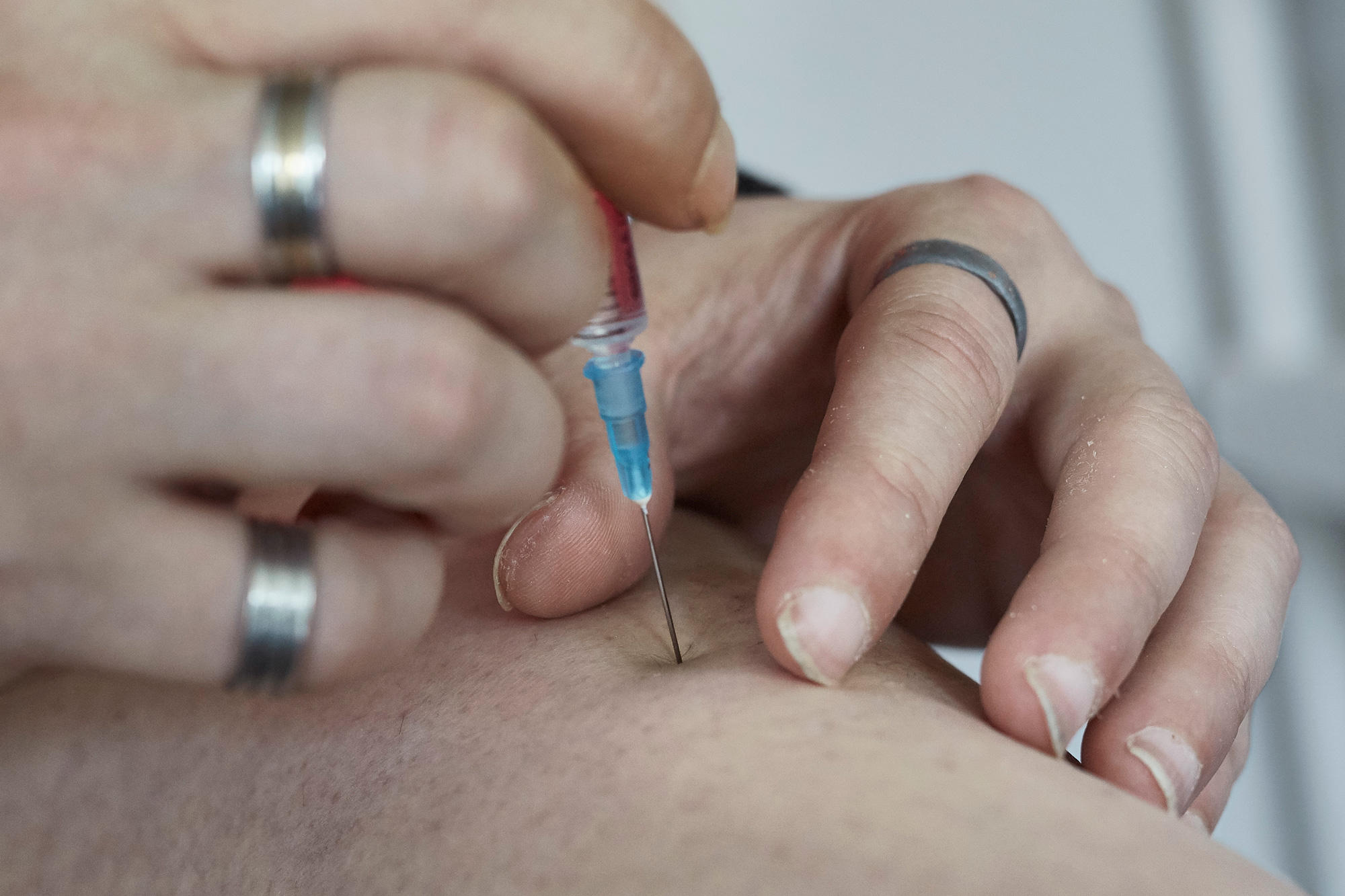
“I take the syringe out and put the lid on. I call out: ‘Syringe!’ One of the nurses looks and calls back ‘Okay!’ I throw it into the syringe container. I catch the next bus. Every two weeks I travel to Spiez to visit my parents. I help them a bit in the house and garden. (…) In the afternoon I go shopping with Mum, for example.”

“Or I sit with Dad in the living room while Mum goes shopping. I might watch a wildlife film with Dad. Or I play him music from my mobile phone. Or we just sleep a bit. When Mum comes back, we have some supper, but then I have to catch the train again to get to the drug distribution point.”
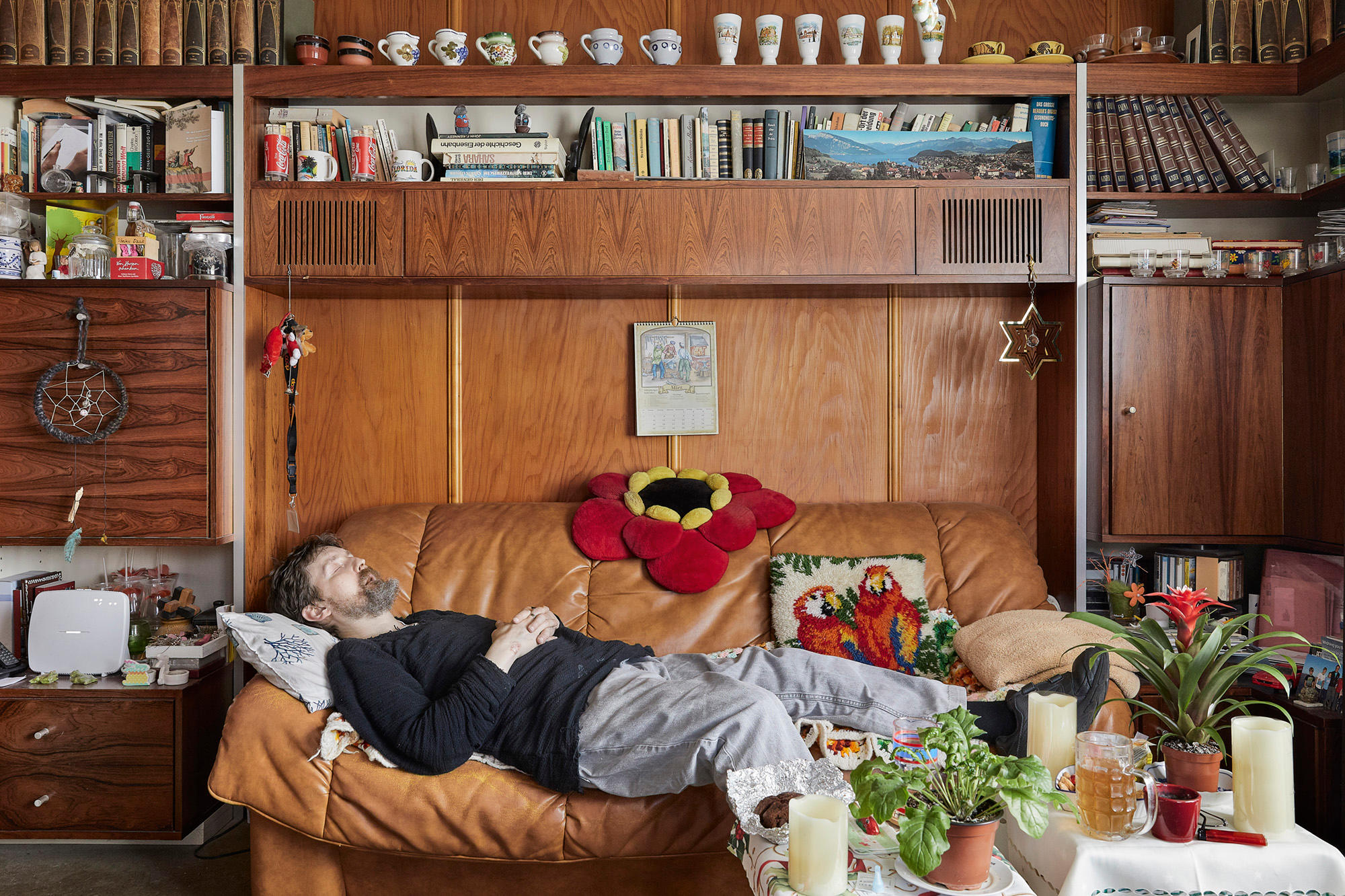
At home in shared accommodation
“I haven’t had a cocaine relapse in more than a year. I have saved up for a Playstation and the social security money I used to spend on cocaine I now spend on games.”
“Yes, the photos are a bit gross. Normally Silvia, my carer, makes sure that the living room is not such a mess.”
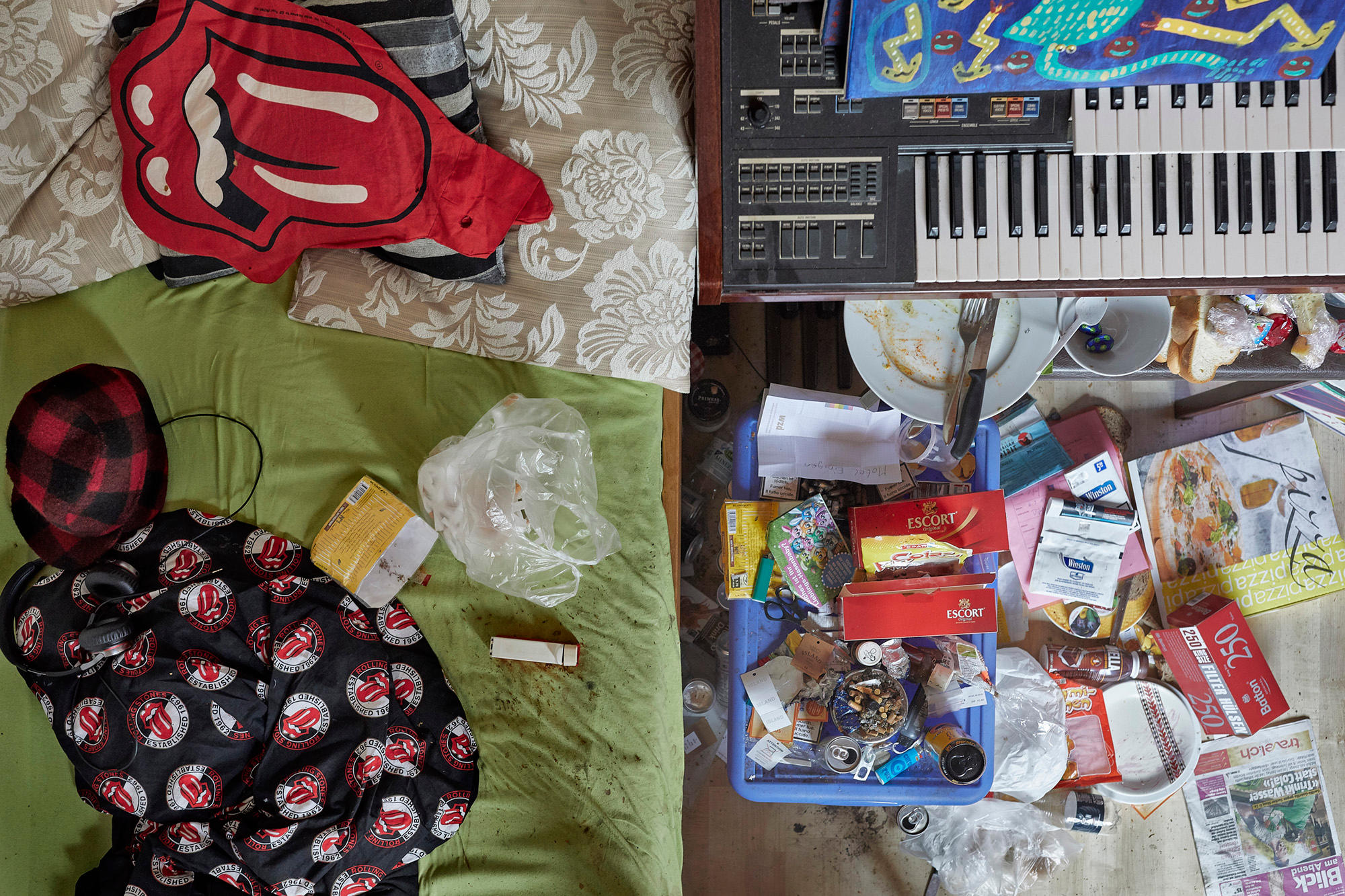
“In my case it was clearly peer pressure that led to addiction. Back then at the beginning of the 1990s, the young people in Spiez used to meet up at a gym because there were concrete rows of seats there. Our interests were souped-up mopeds, smoking weed and beer – until someone brought heroin back from Zurich. Almost half the gang got into heroin within weeks. Unfortunately I was in love with a girl from that half. At the beginning I used to say to her: ‘Heroin is stupid Nathalie, weed is enough to get a good vibe! But then Nathalie and also the others told me I should try it first…”
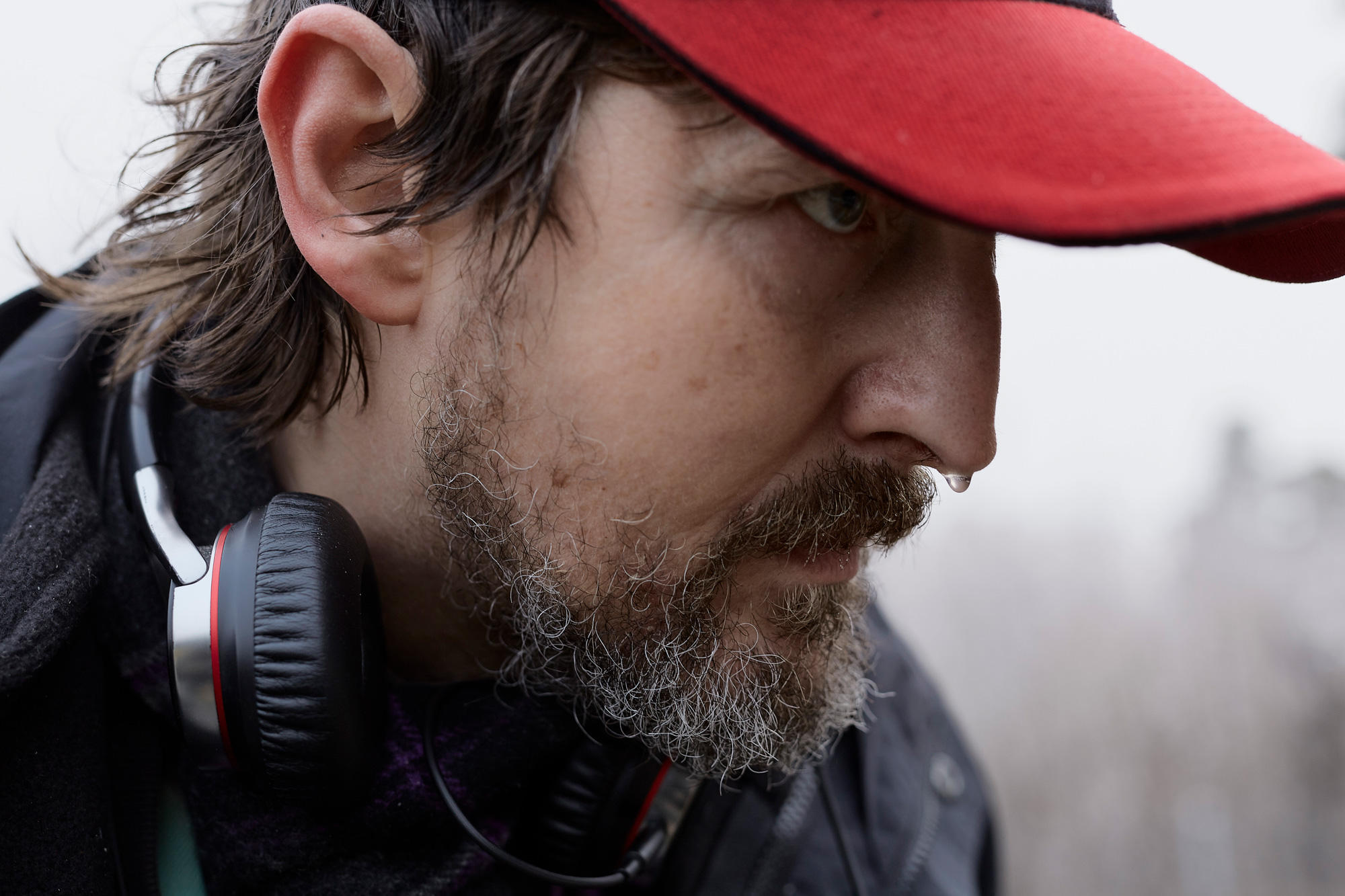
Jonathan Liechti (Photos), Megan Adé (Graphics), Peter Reichen (Author) and Roland Reichen (Co-Author), “Druffä. Aus dem Leben eines Berner Drogensüchtigen”, Münster VerlagExternal link 2019.

In compliance with the JTI standards
More: SWI swissinfo.ch certified by the Journalism Trust Initiative








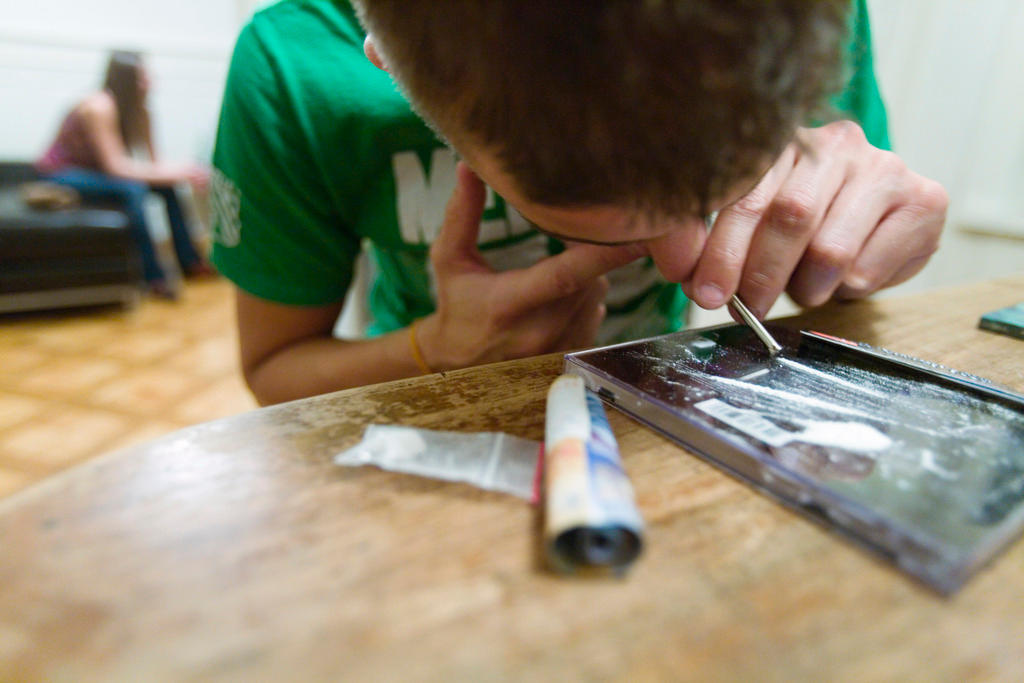
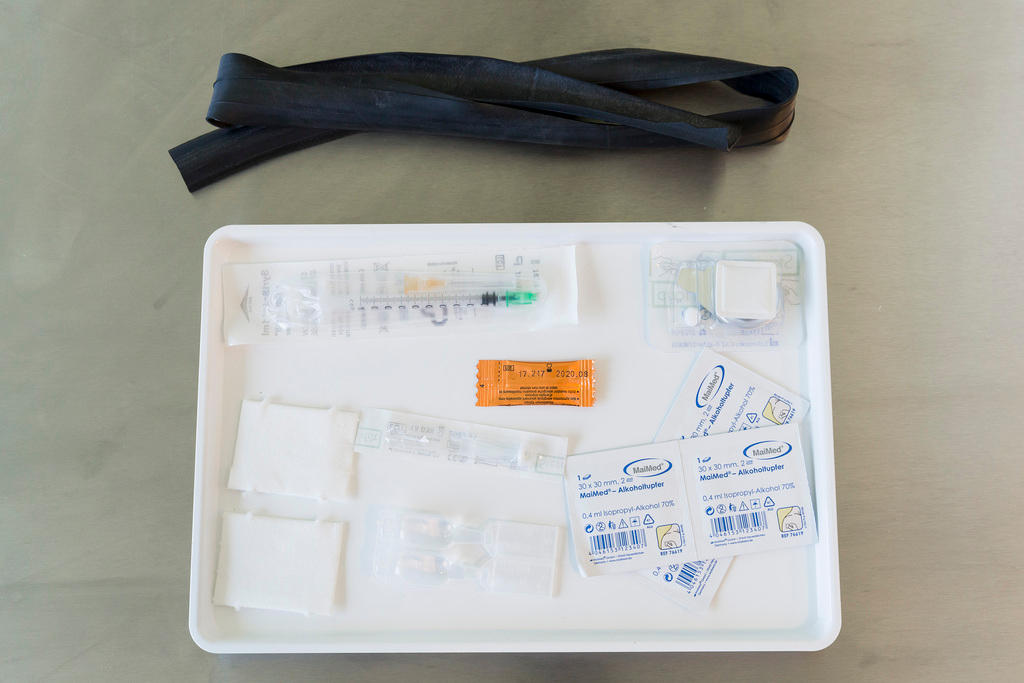
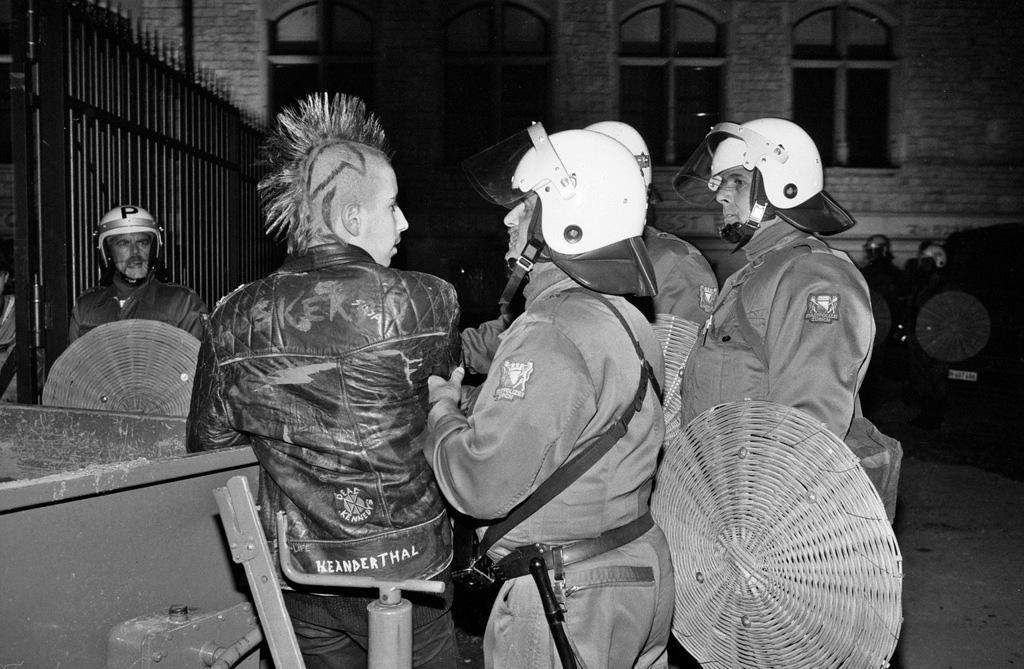
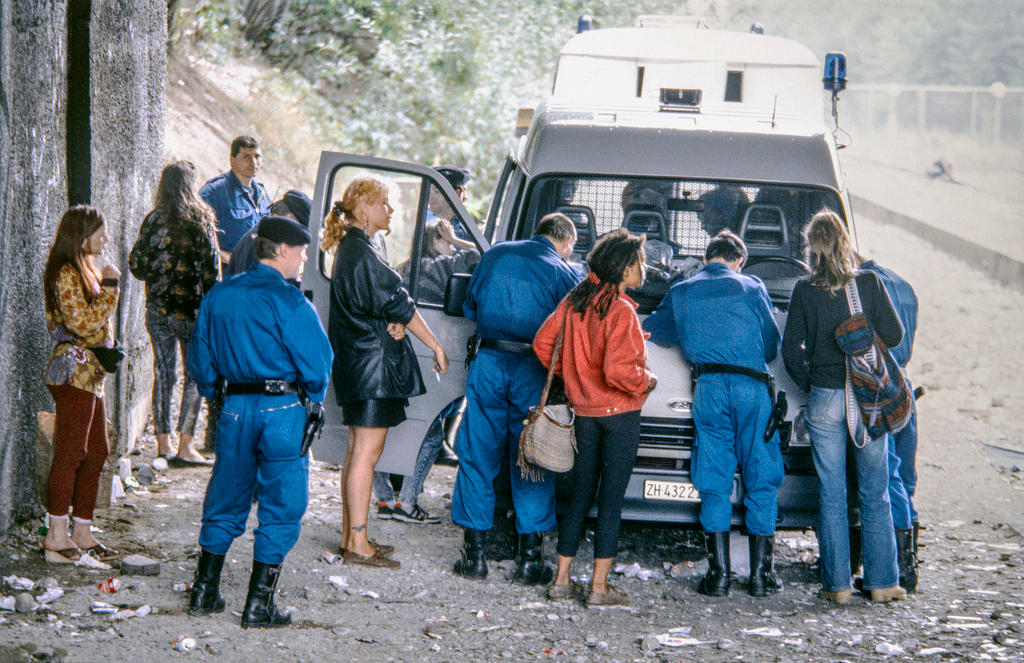
You can find an overview of ongoing debates with our journalists here . Please join us!
If you want to start a conversation about a topic raised in this article or want to report factual errors, email us at english@swissinfo.ch.